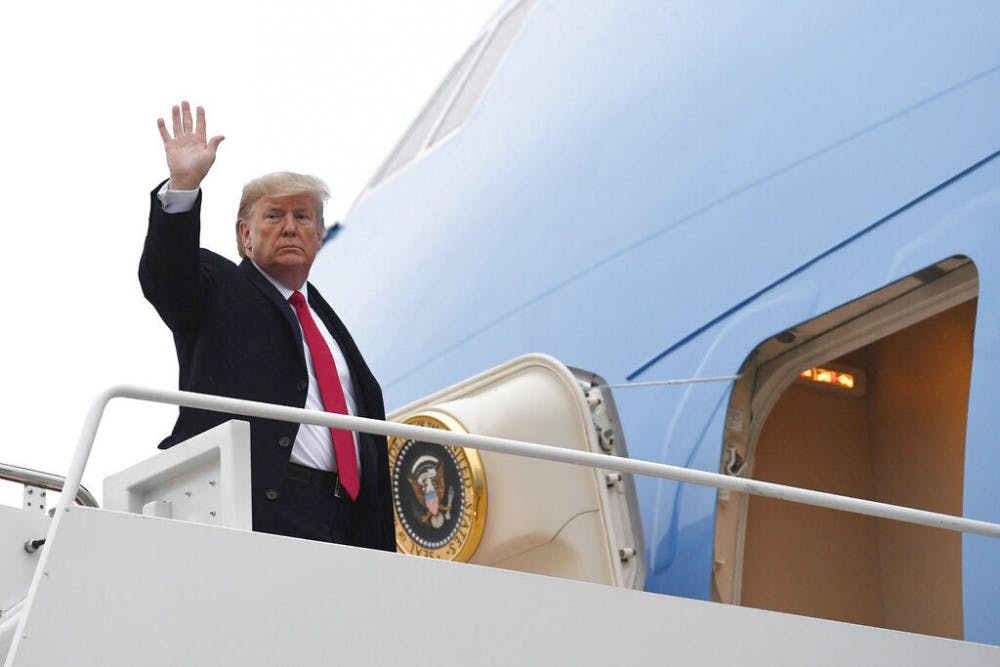While President Trump believes he has a solution for peace in the Middle East, UF students are more divided on the issue.
Trump’s awaited Middle East peace plan, Peace to Prosperity, was unveiled Tuesday, as reported by The New York Times. The plan, which took three years to draft, ensures Israeli control over Jerusalem and promises $50 billion over 10 years to invest in Palestine on a list of conditions.
The conditions range from seceding from areas in the occupied West Bank to demilitarization. Palestinian Authority President Mahmoud Abbas has already rejected the plan.
The plan differs from previous ones because it has an end goal, said Matthew Jacobs, a UF history professor. But while it is an effort to resolve the conflict, it did not include any Palestinian voices in the drafting process.
“To be fair, Palestinians did boycott the process, but there wasn’t a whole lot of space for them to engage,” Jacobs said.
The future of a Palestinian state depends on conditions, he said, adding that nothing is asked on the Israeli side. In the plan, the closest point to a concession is Israel losing control of the entire West Bank, and Israeli Prime Minister Benjamin Netanyahu has not announced an end to expansion in Palestinian areas.
Jacobs believes developing resources is a beneficial long-term goal for Palestinians. However, he is skeptical of the $50 billion investment because they are mainly loans.
While Oman, Bahrain and the United Arab Emirates were supportive of the plan, they’re not committed to paying the $50 billion, he said. Some Arab countries have endorsed it because of the challenges Iran has presented in the region.
“It is an effort to rethink and re-evaluate based on the changing dynamics of the region,” he said.
Gators for Israel and UF Hillel couldn’t be reached for comment as of Sunday night. The Alligator attempted to reach out to various board members from Gators for Israel through Facebook message and phone since Wednesday, and UF Hillel through Facebook message since Thursday.
Laila Fakhoury, president of Students for Justice in Palestine, felt devastated and outraged by the plan and its conditions on Palestine.
“Palestinians receive no control, no sovereignty, no power over themselves,” the 22-year-old philosophy and family, youth and community sciences senior said.
The plan continues an illegal occupation of Palestinians and maintains a severe power disparity, Fakhoury said. It also limits freedom of movement and right of return.
To Fakhoury, it is clear the plan favors one side: Israel’s.
“It’s going to encourage and elevate Palestinians to fight for their freedom,” Fakhoury said, adding it will likely encourage more boycott, divestment and sanctions campaigns and other non-violent resistance movements.
Contact Grethel Aguila at gaguila@alligator.org. Follow her on Twitter @GrethelAguila.
President Donald Trump waves from the top of the steps of Air Force One at Andrews Air Force Base in Md., Friday, Jan. 31, 2020. (AP Photo/Susan Walsh)






